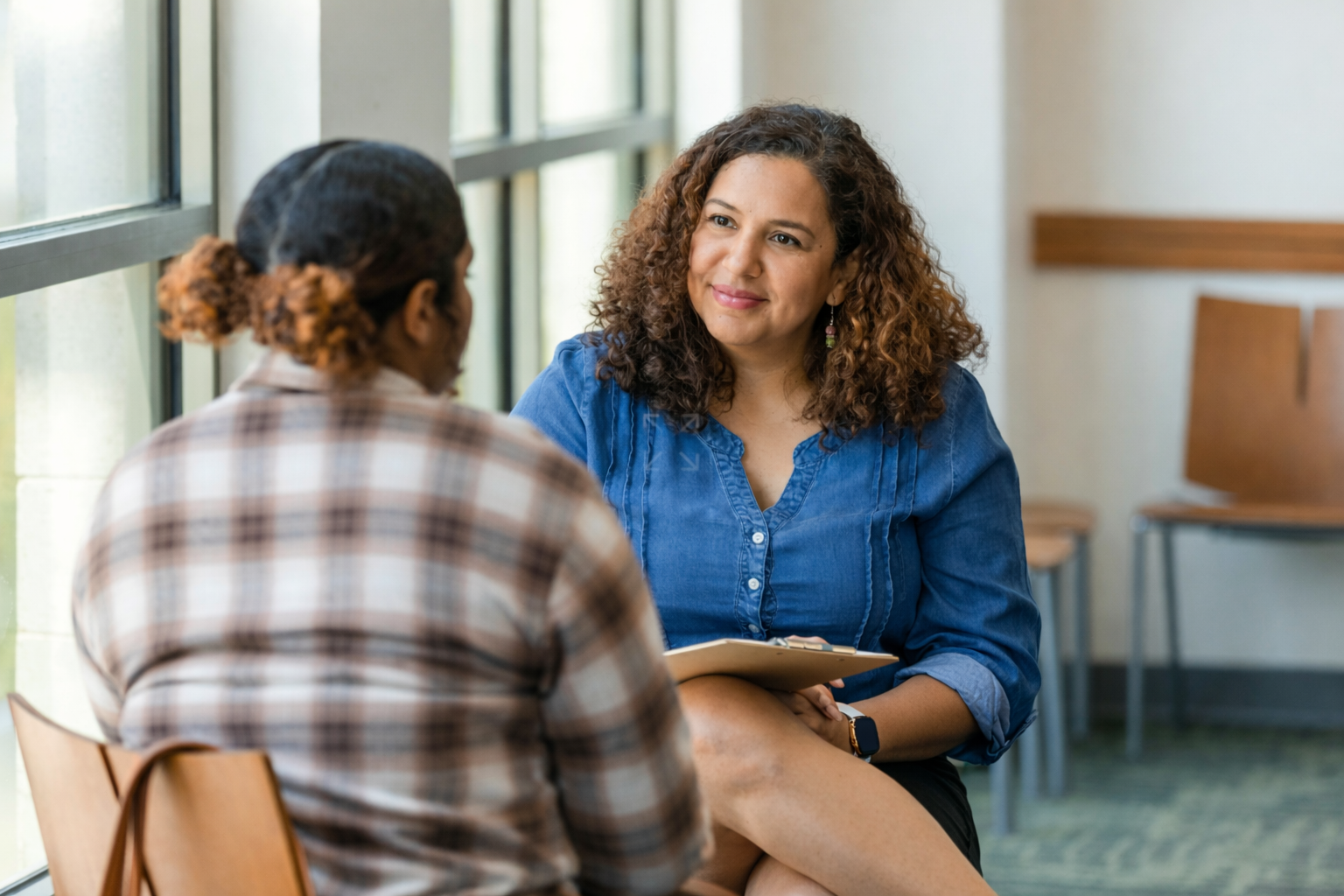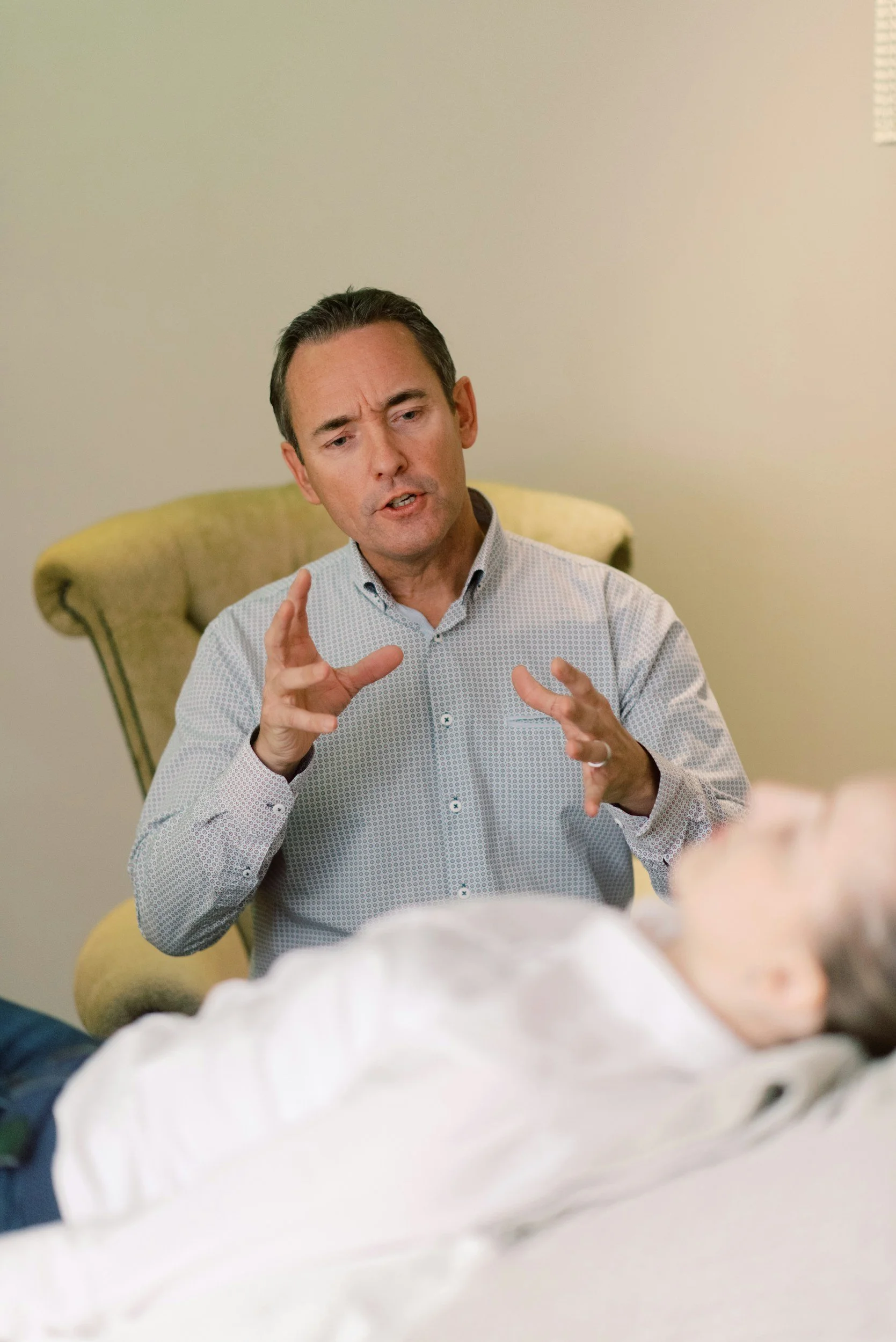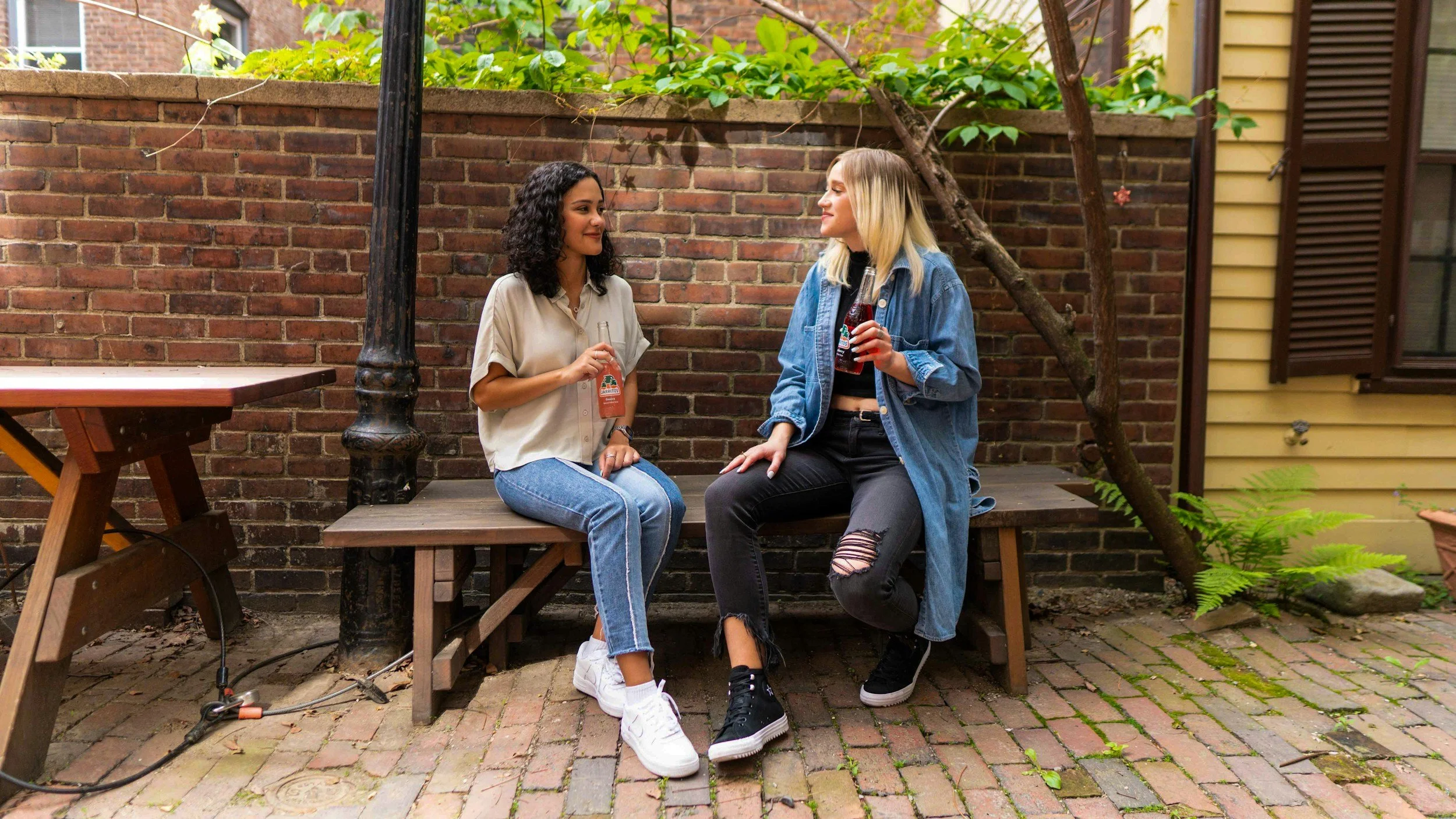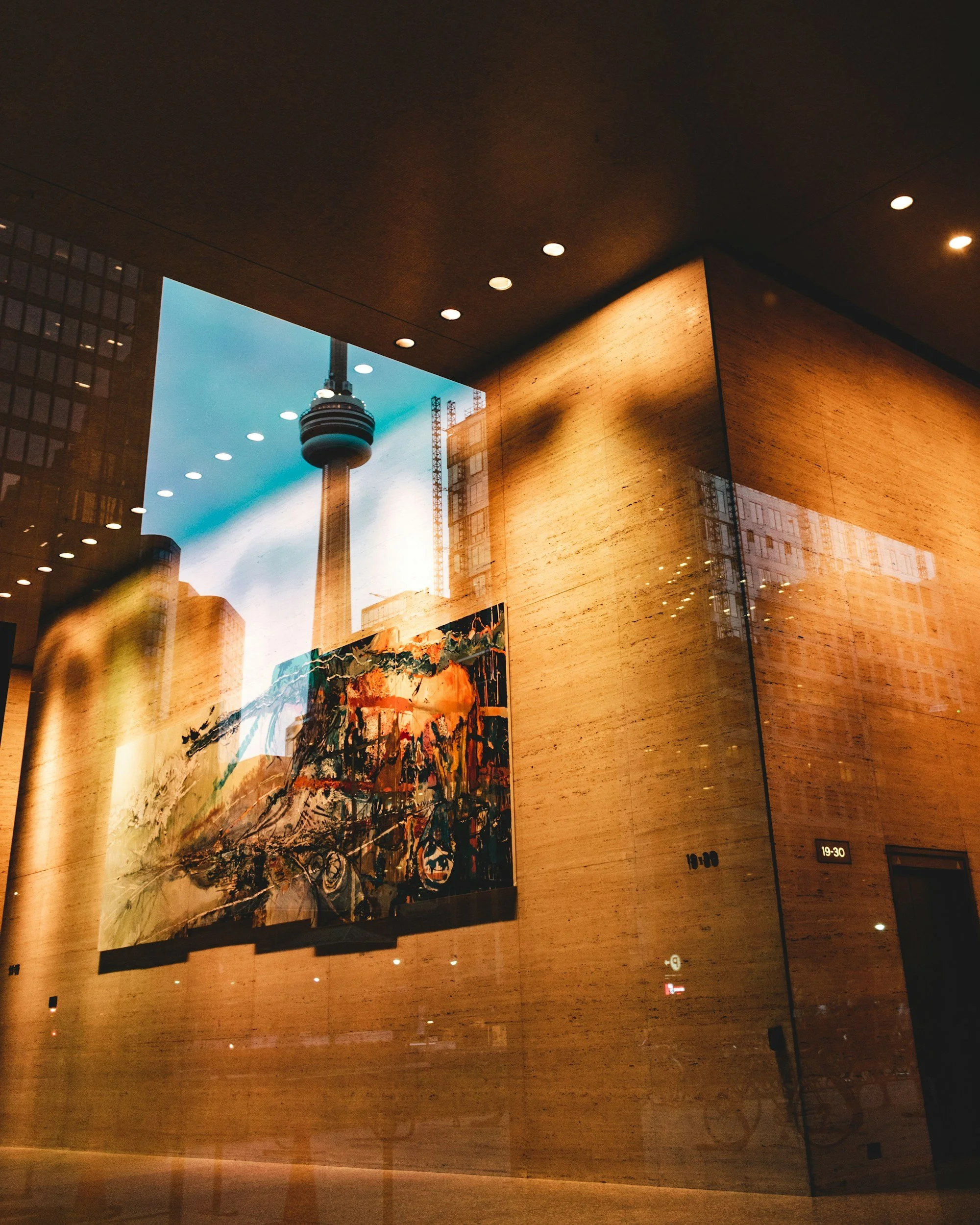This article demystifies sex addiction by explaining what it is, its signs and causes, and the impact on relationships. Learn how to seek help, explore treatment options, and support loved ones. Discover how Transformation Counselling can guide your healing journey.
Depression in Women: 6 Ways to Support Depressed Family and Friends
Learn why women experience depression differently and discover six compassionate ways to support a loved one who is struggling. This article outlines signs to look out for, practical assistance strategies, and the importance of self-care for supporters, and encourages seeking professional help through Transformation Counselling.
Toronto Date Ideas: Creative and Fun Date Ideas for 2026
Discover creative and fun Toronto date ideas for 2026! From romantic walks and cozy cafés to playful, memorable experiences across the city. Whether you’re planning a first date or a meaningful night out, find inspiration to connect and create lasting memories. Explore our Toronto date ideas and start planning your next date today.
Sun Life Direct Billing Now Available for Therapy in Ontario
Depression: Depressed or Just Feeling Down? Understanding the Difference and Finding Support
This article explains the difference between everyday sadness and clinical depression. It describes key symptoms of depression, reasons we confuse them, self-care tips for feeling down, and guidance on when to seek professional help. It also offers advice on supporting someone with depression and invites readers to book an appointment with Transformation Counselling.
Eating Disorders: A North American Epidemic and How Counselling Can Help
Explore why eating disorders are so prevalent in North America, learn about the different types and warning signs, and discover compassionate ways to support yourself or a loved one. This comprehensive article examines the role of diet culture, offers practical steps for recovery, and highlights how counselling can help address underlying issues. If you or someone you know is struggling with disordered eating, book an appointment with Transformation Counselling.
Understanding Countertransference: What It Is and Why It Matters in Therapy
Learn what countertransference is and why it matters in therapy. Discover the difference between transference and countertransference, examples, how therapists manage their reactions, what clients should know, and why exploring these dynamics in counselling can lead to healing. Includes a compassionate invitation to book with Transformation Counselling.
Counselling, Therapy and Friendship: How They Differ and Why We Need Both
Counselling, Self‑Awareness and Intelligence: How Knowing Yourself Builds Inner Wisdom
Discover how self-awareness supports emotional intelligence, cognitive growth, and healthier relationships. This guide explains why self-awareness matters, how counselling fosters insight, and practical steps you can take to know yourself better. It invites you to explore therapy with Transformation Counselling to deepen your journey.
Coping with Infertility: Understanding the Emotional Journey and Finding Support
Infertility impacts millions, causing grief, anxiety and strain on relationships. Learn what infertility is, why it hurts so deeply, coping strategies for individuals and couples, and when to seek professional support. Discover how Transformation Counselling can help you navigate this journey and book an appointment to start healing.
Does Inactivity Make Anxiety Worse? Understanding the Mind–Body Connection
Discover how prolonged inactivity can contribute to anxiety and why gentle movement is essential for mental health. This article explores the mind‑body connection, signs that inactivity may be affecting you, and practical tips to incorporate movement into your day. If you’re feeling overwhelmed, Transformation Counselling can help you find support.
Creating Your Own SMART Goals: A Practical Guide to Achievable Change
Affordable Counselling in Ottawa — Free Counselling Options
Affordable Counselling in Ottawa — Free Counselling Options
If you’re in Ottawa and looking for affordable counselling, Transformation Counselling is a great place to begin. While based outside the city, they offer online therapy anywhere in Ontario, including free or very low-cost sessions with supervised student therapists. These students are completing master’s-level training and work under the guidance of experienced clinicians, providing quality support at a fraction of the cost.
Their student therapy program ranges from free to $80 per session, depending on availability. Regular therapy with licensed clinicians is also offered on a sliding scale from $140–$195 per session. The process is simple: complete their online intake form, and they’ll match you with a therapist who fits your needs.
Why start here?
No need to be in the same city — sessions are online.
Options for free or low-cost therapy.
Quick, personalized therapist matching.
Free & Low-Cost Counselling Options in Ottawa
In addition to Transformation Counselling, Ottawa offers many local resources for free or affordable mental health care:
Counselling Connect
🌐 counsellingconnect.org
📍 Ottawa, ON (and Eastern Ontario)
📞 Contact via online booking
💲 Free single-session counselling for children, youth, adults, and families — available by phone, video, or in person. No waitlist.
The Walk-In Counselling Clinic
🌐 walkincounselling.com
📍 Multiple locations in Ottawa
📞 (613) 755-2277
💲 Free same-day counselling, no appointment needed. Services in English, French, Arabic, Somali, Spanish, and more.
Ottawa Distress Centre
🌐 dcottawa.on.ca
📍 Ottawa, ON
📞 613-238-3311 (24/7)
💲 Free crisis and emotional support by phone or text.
Family Services Ottawa (FSO)
🌐 familyservicesottawa.org
📍 312 Parkdale Ave, Ottawa, ON
📞 (613) 725-3601
💲 Sliding scale counselling starting at $12 per session.
Pinecrest-Queensway Community Health Centre (PQCHC)
🌐 pqchc.com
📍 1365 Richmond Road, Ottawa, ON
📞 (613) 820-4922
💲 Free or low-cost counselling for individuals and families, with some walk-in availability.
Centretown Community Health Centre
🌐 centretownchc.org
📍 420 Cooper Street, Ottawa, ON
📞 (613) 233-4443
💲 Free mental health support for residents in their catchment area.
Ottawa Rape Crisis Centre
🌐 orcc.net
📍 Ottawa, ON
📞 Crisis Line: 613-562-2333
💲 Free counselling for survivors of sexual violence.
Ottawa Youth Services Bureau (YSB)
🌐 ysb.ca
📍 2675 Queensview Dr, Ottawa, ON
📞 Crisis Line: 613-260-2360
💲 Free counselling for youth ages 12–20.
Distress Centre of Ottawa and Region — Text and Chat
🌐 dcottawa.on.ca
📞 Text 343-306-5550 or chat online
💲 Free, confidential support for all ages.
Final Thoughts
If you’re in Ottawa and need therapy, start with Transformation Counselling’s online student therapist program for free or very affordable sessions. Then, explore Ottawa’s strong network of local services — from Counselling Connect and The Walk-In Counselling Clinic for immediate access, to Family Services Ottawa for ongoing affordable therapy. For crisis situations, Ottawa’s Distress Centre and specialized hotlines are there 24/7.
Help is closer — and more affordable — than you think.
Affordable Counselling in Toronto — Free Counselling Options
Low Cost Counselling and Free Counselling Options in Toronto at Transformation Counselling
Let’s begin with what Transformation Counselling offers—that gentle stepping stone for accessing therapy when funds are tight. Though based outside Toronto, they provide online free and low‑cost counselling across Ontario. Their standout offering? Sessions with supervised student therapists—master’s-level trainees delivering care under professional oversight. These sessions are free or very low cost, depending on availability—and a friendly intake process helps match you to the right therapist quickly.
Regular therapy with their experienced team typically runs between $140–$195 per session, but their supervised student options slide down to just $10–$80 per session—a more budget-friendly alternative.
Why Transformation Counselling is such a great first step:
Easy online intake and booking.
Quick therapist matching tailored to your needs.
Accessible mental health care, even if funds are limited.
If you're in Toronto, you can still book online with them for affordable support, no matter where you are in Ontario.
Other Free & Low-Cost Counselling Options in Toronto
In addition to Transformation Counselling, there are several local alternatives offering free or deeply reduced counselling. Here’s a friendly roundup:
Toronto Community Psychotherapy & Counselling Centre (TCPCC)
Offers a Free Counselling Service through an application process—no standard fee. They assess applications (often income-based) and aim to increase accessibility to mental health care. You can also book a 15-minute free consultation to get started.Hopewoods
A Toronto-based centre offering free consultations and regular free workshops via their community engagement initiative. They connect individuals to a range of free and low‑cost mental health supports through their network.Hard Feelings
A unique registered charity in Toronto, offering low‑cost counselling paired with a community-minded model: their curated store supports mental health, and counsellors offer sliding-scale sessions at accessible rates. Visit them in person at 353 Church Street.Radcliffe Psychotherapy Clinic
Offers 5 free sessions with practicum student therapists—no financial disclosure required. Afterward, you may continue at $50 plus HST per session, depending on availability and need.Low‑Cost Therapy via Student & Sliding‑Scale Options
The Toronto Institute for Relational Psychotherapy (TIRP) lists student therapists charging approximately $25 per session, while senior therapists may range from $40‑$80. Additional sliding-scale options are available through the Ontario Psychotherapy and Counselling Referral Network at around $30‑$60 per session, with a free first consultationUnited Way’s Community-Based Services
Hard Feelings bookstore model (mentioned above)
Lumenus “What’s Up?” Walk‑In Clinic: free counselling for kids, youth, families—no appointment needed
Moss Park’s MLSE Launchpad: free drop‑in counselling for youth aged 6–29, along with wellness programs.
Distress & Crisis Hotlines
Distress Centres of Greater Toronto: 24/7 emotional support via phone or online; anonymity guaranteed
408‑Helpline: 24/7 in English, multilingual hours available
Talk Suicide Canada: call 1‑833‑456‑4566 or text 45645
Wellness Together Canada: offers text support, peer/community groups, and self-directed resources—free and national
Canadian Mental Health Association (CMHA) Toronto: client-first, recovery-oriented services that integrate emotional, social, and physical care.
City of Toronto Programs
Through a partnership program, the city connects residents to a network of free telephone, text, and online mental health supports—from Indigenous, Black, 2SLGBTQ+, seniors, and other community-focused services. For directions, call 211 to get referred City of Toronto.
Affordable Mental Health Services in Toronto
Transformation Counselling
🌐 transformationcounselling.com
📍 Online (available anywhere in Ontario)
📞 Contact via website intake form
💲 $10–$80 per session with supervised student therapists
Toronto Community Psychotherapy Centre (TCPCC)
🌐 torontopsychotherapy.org
📍 Toronto, ON
📞 Contact via online application
💲 Free counselling service (application-based)
Hopewoods
🌐 hopewoods.ca
📍 Toronto, ON
📞 info@hopewoods.ca
💲 Free consultations and workshops
Hard Feelings
🌐 hardfeelings.org
📍 353 Church Street, Toronto, ON
📞 info@hardfeelings.org | (416) 979-1900
💲 Affordable sliding-scale therapy
Radcliffe Psychotherapy Clinic
🌐 angerandanxiety.com
📍 Toronto, ON
📞 (416) 785-1793
💲 5 free sessions with student therapists, then $50+HST per session
Toronto Institute for Relational Psychotherapy (TIRP)
🌐 tirp.ca
📍 Toronto, ON
📞 Contact via online form
💲 $25–$80 per session (student and senior therapist rates)
Ontario Psychotherapy and Counselling Referral Network (OPCRN)
🌐 psychotherapyreferral.com
📍 Ontario-wide
📞 (416) 920-9355
💲 $30–$60 per session, free first consultation
Lumenus “What’s Up?” Walk-In Clinic
🌐 lumenus.ca
📍 Multiple Toronto locations
📞 (416) 595-9618
💲 Free drop-in counselling for children, youth, and families
MLSE Launchpad
🌐 mlselaunchpad.org
📍 259 Jarvis Street, Toronto, ON
📞 (416) 703-5899
💲 Free drop-in counselling for youth (ages 6–29)
Distress Centres of Greater Toronto
🌐 dcogt.com
📞 416-408-4357 (24/7)
💲 Free crisis support
408-Helpline
📞 416-408-4357 (24/7)
💲 Free crisis support in English, with multilingual hours
Talk Suicide Canada
🌐 talksuicide.ca
📞 1-833-456-4566 or text 45645 (24/7)
💲 Free suicide prevention and crisis support
Wellness Together Canada
🌐 wellnesstogether.ca
📍 Nationwide
💲 Free online resources, peer support, and counselling
CMHA Toronto
🌐 cmhato.org
📍 Toronto, ON
📞 (416) 789-7957
💲 Free and low-cost mental health services
City of Toronto – 211 Referral Line
🌐 211ontario.ca
📞 Dial 211 (24/7)
💲 Free referrals to community mental health supports
Final Thoughts
If you’re looking for accessible counselling in Toronto, start with Transformation Counselling’s online student-therapist option—a compassionate, low-cost entry point no matter where you live in Ontario.
Then, explore local Toronto resources—TCPCC, Hopewoods, Hard Feelings, Radcliffe, and others—depending on your needs and preferences. Youth and families can take advantage of Lumenus walk-in clinics or MLSE Launchpad, while urgent support is always available via distress lines and virtual services.
Take a deep breath—you’re not alone, and there's a path forward that fits your needs and budget.
Would you like me to help you explore any of these in more detail or guide you through the next steps?
How to Become a Psychiatrist in Canada: Education, Residency & Licensing
How Long Does It Take to Become a Psychiatrist in Canada?
Becoming a psychiatrist in Canada typically takes around 12 years after high school. That’s because psychiatrists are medical doctors who specialize in mental health—so they need extensive education, clinical training, licensing exams, and residency.
Step 1: Your Undergraduate Degree & Prerequisites
You start with a Bachelor’s degree, usually in science or health-related fields like biology, psychology, or neuroscience.
Schools also expect prerequisite courses in subjects like chemistry, physics, biology, and math.
A strong GPA and volunteer or research experience help your medical school application.
Step 2: Medical School
Medical school takes four years and leads to an MD degree.
You’ll learn about anatomy, physiology, pharmacology, patient care, and do clinical rotations, including psychiatry.
Many students choose psychiatry electives or research in their final years.
Step 3: Psychiatric Residency
After medical school, you enter a five-year residency in psychiatry obtained through the Canadian Resident Matching Service.
Residency includes:
PGY‑1: one year in general medicine, neurology, emergency medicine, etc.
PGY‑2 & PGY‑3: training in adult, child/adolescent, and geriatric psychiatry.
PGY‑4 & PGY‑5: leadership, specialization tracks, electives (e.g. forensic psychiatry, psychotherapies).
Step 4: Mandatory Exams & Certification
You must pass the Medical Council of Canada Qualifying Exams (MCCQE) Part I & II—these grant you the Licentiate of the Medical Council of Canada (LMCC).
At the end of residency, you take the Royal College of Physicians and Surgeons of Canada psychiatry exam to become a certified specialist (FRCPC).
Step 5: Provincial Licensing
After certification, you apply for a medical license from your provincial College of Physicians and Surgeons (e.g., CPSO in Ontario, CPSBC in BC).
Each province has its own registration process, but all require medical school, residency, and successful exams.
Ongoing Learning & Career Development
After becoming a psychiatrist, lifelong learning is mandatory. You continue with:
Continuing medical education (CME), conferences, board recertification
Research or fellowship options, such as specializing in child psychiatry, psychotherapy, or forensic mental health.
Canadian psychiatry training programs are guided by the CanMEDS framework, which ensures doctors develop as communicators, professionals, leaders, advocates, and scholars—not just clinicians.
Why This Matters for You
Knowing the path to become a psychiatrist can help you feel more confident when choosing one. You can be assured that licensed psychiatrists in Canada have undergone:
years of rigorous academic study and clinical training
standard exams and certification
ongoing learning and regulatory oversight
So when you book an appointment, ask if they hold FRCPC status and are licensed by your province’s medical college—this ensures they meet all official standards.
What to Expect in Your First Therapy Session in Canada
How to Prepare for Your First Counselling Session
Before your session, you may be asked to:
Complete a brief intake form
Share any history or specific concerns
Choose between in-person or secure online therapy (via JaneApp)
Confirm pricing and payment information
💡 Tip: Our rates range from $40–$70 depending on your therapist and coverage. Many of our clients use extended health benefits to cover sessions.
What Happens in the First Therapy Session
A typical first session lasts about 50–60 minutes and focuses on building a foundation of trust, understanding, and therapeutic direction.
✅ 1. Welcome & Orientation
You’ll be welcomed into a calming, non-judgmental space—online or in person. Your therapist will introduce themselves and create an environment where you feel safe and respected.
✅ 2. Consent & Confidentiality
Before diving in, your therapist will go over:
What you can expect from therapy
How your information is kept private
The limits of confidentiality (e.g. harm to self or others)
✅ 3. Exploring Your Story
You’ll be gently invited to share:
Why you're seeking counselling
What's currently challenging you
Key life events or patterns you want to change
This is a no-pressure space—you only share what you feel ready to.
✅ 4. Setting Goals
Together, you and your therapist will begin to identify:
Your immediate needs (e.g. managing anxiety, grief, overwhelm)
Your long-term goals (e.g. building confidence, healing trauma, improving relationships)
These goals may evolve over time, and that’s completely okay.
✅ 5. Outlining a Plan
You may explore what future sessions might look like, including:
Suggested therapy modalities (e.g. CBT, DBT, IFS, EMDR)
Session frequency (typically weekly or bi-weekly)
Whether you'd benefit from a short- or long-term approach
✅ 6. Asking Questions
You’ll have time to ask things like:
“What kind of therapy do you use?”
“Have you worked with people who’ve faced similar issues?”
“What happens if I feel stuck or unsure?”
Your comfort, autonomy, and voice matter here.
After the Session: What to Expect Next
Many clients leave their first session feeling relieved, hopeful, or reflective. You might also feel emotionally raw—and that’s totally normal.
After your session:
You’ll receive scheduling follow-up (via JaneApp)
You may be given reading, journaling, or grounding tools
You can reflect on how the session felt and decide if it’s the right fit
💡 Reminder: You’re not locked in. If this therapist or approach doesn’t feel right, we’re here to help you find someone who does.
✨ Your Transformation Journey Starts Here
At Transformation Counselling, we believe therapy isn’t just about solving problems—it’s about becoming more of who you really are.
Our model is rooted in three phases:
Stabilization & Safety – Building trust, coping strategies, emotional regulation
Exploration & Healing – Processing root issues and trauma
Integration & Growth – Rebuilding a stronger, healthier sense of self
This first session is the beginning of that arc.
Why People Choose Transformation Counselling
Transformation Counselling isn’t just about managing anxiety, depression, or stress—it’s about helping you transform your inner world so you can live with more peace, confidence, and clarity.
Our experienced Ontario-based therapists provide compassionate, personalized care rooted in evidence-based practices. Whether you're new to therapy or returning, your first session is the beginning of a journey toward self-discovery and healing.
Book Your First Session
Ready to take the first step? Click the button below to get started.
Love in Waterloo: Creative and Fun Date Ideas for 2025
Love in Waterloo: Creative & Fun Date Ideas for 2025
Whether you're exploring downtown Uptown Waterloo, strolling along Silver Lake, or venturing into nearby attractions, Waterloo offers endless ways to make 2025 memorable with your special someone. Here's a curated guide to romantic, playful, and unique date experiences:
Culture & Art
Canadian Clay & Glass Gallery – Wander through exhibitions of contemporary glass and ceramic art in this unique national gallery. A surprisingly contemplative and conversation-sparking visit.
Brubacher House Museum – Step back into Waterloo’s past with a guided tour of this historic Mennonite farmhouse and garden. A charming, low-key date spot.
Outdoor Escapes
Waterloo Park & Silver Lake – Spend a peaceful afternoon walking the trails, visiting the animals at Eby Farmstead, or enjoying a picnic by the lake. Ideal for relaxed connection.
Walter Bean Grand River Trail – Cycle or stroll along the scenic 76 km Grand River corridor. Perfect for an active day date or seasonal foliage viewing.
West Montrose Covered Bridge (“Kissing Bridge”) – Visit one of Ontario’s oldest covered bridges, with its romantic lore and rural charm just a short drive away.
Dining & Drinks
Bhima’s Warung – An intimate dinner at this beloved Asian‑fusion restaurant (King Street North) offers spicy, creative dishes and a memorable ambiance.
That’s Amore! Tapas – Cozy tapas dining in Kitchener with delicious shared plates and wine—perfect for lingering conversations over small bites.
Playful & Interactive
The Adventurer’s Guild / Games on Tap – Cozy up at one of Waterloo’s board game cafés. Choose from hundreds of games while sipping coffee, beer, or cocktails together.
Bad Axe Throwing – Try something adventurous and playful: safely hurl axes side by side and share some laughs (and friendly competition).
Local Attractions & Hidden Gems
KW Escape Rooms – Team up to solve puzzles and beat the clock in a themed escape room—fun, engaging, and a great bonding experience.
Waterloo Central Railway – Take a scenic train ride through the region—ideal for nostalgia and relaxed, slow-paced conversations.
Cozy Night Out or Festivals
Princess & Apollo Cinemas – Skip the big chains and enjoy indie films, classics, or cult favorites in comfy, intimate theatres.
Local Festivals & Night Markets – Check out seasonal events like night markets, cultural festivals, and summer concerts for a lively, casual evening together.
Sample Date Itineraries
1. Creative & Cultural Afternoon
Start with art at the Clay & Glass Gallery → stroll through Waterloo Park and feed ducks at Silver Lake → tapas dinner at a cozy Kitchener spot.
2. Active Outdoor Adventure
Cycle or walk along the Grand River Trail → explore rural charm at Kissing Bridge → cap the day with drinks & games at a board game café.
3. Rainy-Day Charm
Warm up with a historic tour at Brubacher House → unwind at a café or sip cocktails → enjoy a local indie film screening in a boutique cinema.
Pro Tips for Memorable Dates
Mix up indoor & outdoor experiences for well-rounded outings.
Reservations recommended for dinner at popular spots like Bhima’s or That’s Amore!
Dress in layers, as spring and fall weather in Waterloo can be unpredictable.
Local events change seasonally, so find current festivals or markets online before you go.
With these ideas, Waterloo offers both classic romance and creative fun—whether you're planning a first date or rekindling connection with someone you've known forever. Mesmerizing art, rustic scenery, spirited competition, and cozy evenings are all here waiting. Enjoy your time exploring and making memories together in this charming city!
Need to Speak With a Therapist?
If you’re feeling stuck, lonely, or overwhelmed in your relationship—or struggling with patterns that keep repeating—individual therapy can help you gain clarity and confidence. Whether you're navigating heartbreak, trust issues, conflict, or the impact of past relationships, our therapists at Transformation Counselling can support you in understanding your needs, setting healthy boundaries, and building stronger connections. You don’t have to go through it alone. Take the first step toward healing and growth—book a session today.






























